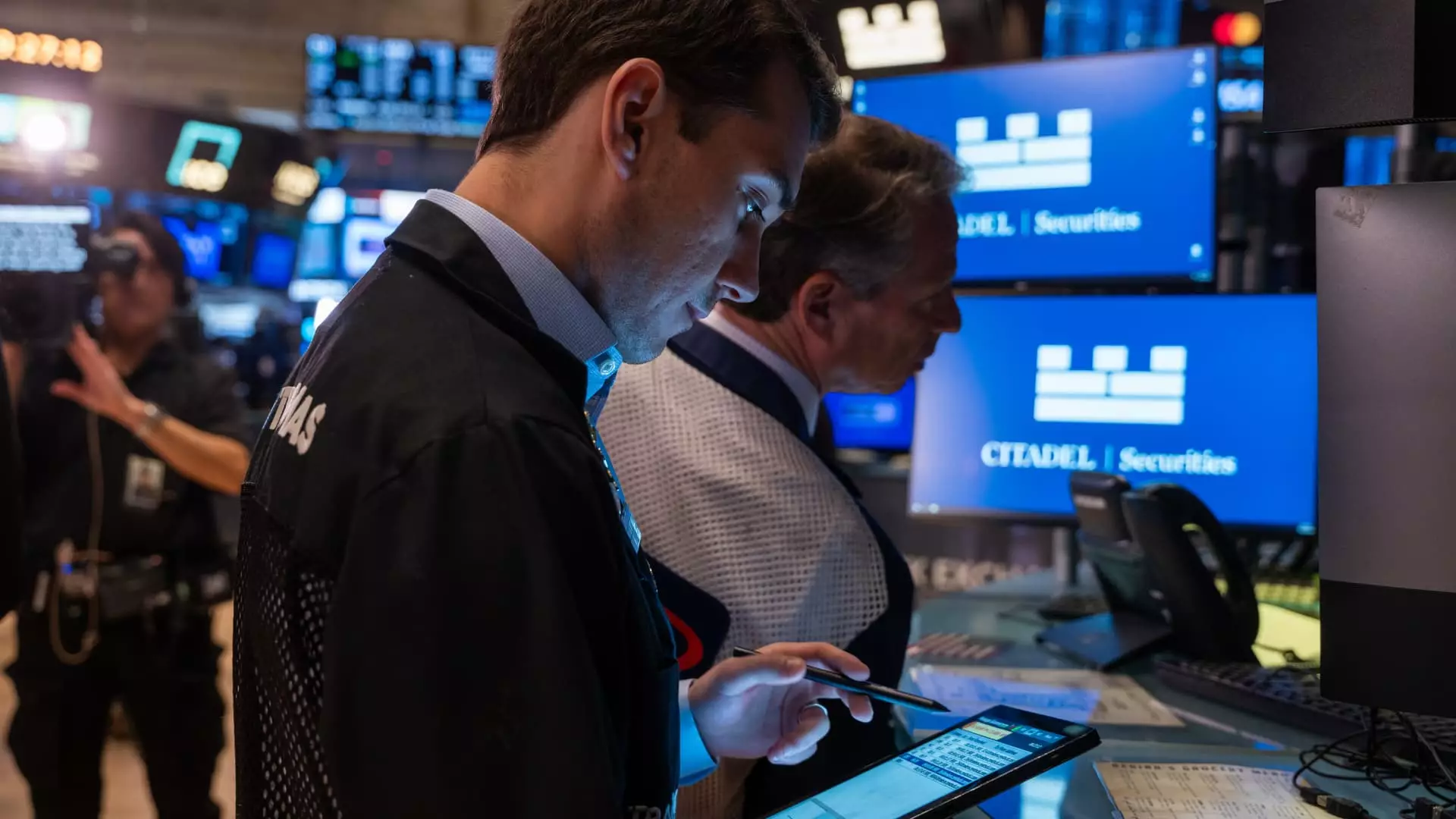The stock market is a dynamic environment that often behaves unpredictably, reflecting various economic indicators and sentiment shifts. Recently, the 30-stock Dow index managed to break a five-day losing streak, marking a potential turning point. Investors and analysts alike will be eager to see what the following day brings, especially with anticipation surrounding critical economic data, including upcoming home price statistics due out at 9 a.m. Eastern Time the next morning. This release will likely influence trading behavior, particularly in sectors closely tied to real estate development.
Traditional sectors are experiencing downward pressure, with the S&P 500 Homebuilders Industry showing a substantial decline of 5.8% over the past month. Companies like Lennar and D.R. Horton have felt the pinch, with Lennar slipping nearly 7% and D.R. Horton down 5.2% in the same timeframe. This downward trend raises questions about the broader implications for housing, consumer sentiment, and the economy at large.
In the world of technology, earnings reports are always highly anticipated events that can cause significant market fluctuations. This week is particularly noteworthy as major players in the tech sector, including Alphabet and Advanced Micro Devices (AMD), are set to unveil their quarterly results. Alphabet’s performance has remained relatively flat over the past three months, with its stock currently languishing 13% below its July peak. Seema Mody from CNBC is expected to cover AMD’s earnings; as the stock is 30% off its March high but has rebounded 14% over the past quarter, the results will provide critical insight into the company’s future trajectory.
Additionally, Nvidia finds itself in a far more favorable position, up 24% in the previous three months and only 2.7% shy of its most recent high. This juxtaposition of tech companies illustrates the variance in performance within the sector, making market predictions increasingly complicated.
Another critical sector to watch is food and dining, with several heavyweights poised to deliver quarterly results. Chipotle, under interim CEO Scott Boatwright, will present its earnings amid a backdrop of increasing stock performance—up by approximately 22% over the past three months. However, it remains 12% from its mid-June highs, illustrating the volatility of the market.
Contrastingly, the iconic burger chain fell nearly 5.8% in the last week, a drop that coincides with health concerns linked to Quarter Pounder burgers in various locations. Despite this fallout, McDonald’s shares have risen around 18% within the last three months, though they remain 6.5% away from their 52-week peak. The restaurant industry is notorious for rapid sentiment shifts, thus making these reports critical not only for investors but also for suppliers and stakeholders within the broader food ecosystem.
The defense industry is also a topic of intrigue, particularly following recent military developments. Lockheed Martin’s F-35 stealth fighter was recently put to the test with Israel’s strikes on Iran over the weekend. While stock reactions to such events are not immediate due to the lengthy order approval processes, the implications for international military sales are significant. This could influence countries considering alternatives like the Eurofighter to err on the side of Lockheed’s offerings.
Yet again, the performance of defense stocks showcases regional tensions’ direct effect on market conditions. Lockheed Martin is trading 10% below its 52-week high, while RTX and other defense contractors also reflect promising growth—up nearly 50% year-to-date. These fluctuations underline the intricate balance between geopolitical events and market performance, highlighting the essential role of analytical foresight in investment strategies.
The stock market remains a tapestry woven from numerous threads of economic data, corporate earnings, and geopolitical occurrences. As investors prepare for these upcoming reports and analyses, they must remain vigilant and adaptable. Whether tracking the performance of homebuilders, big tech, or the defense sector, the capacity to read the tea leaves may prove invaluable in sustaining investment returns amidst prevailing uncertainties. In a world that forever changes, those equipped with timely information and analytical prowess are better positioned to navigate the complex landscape ahead.

